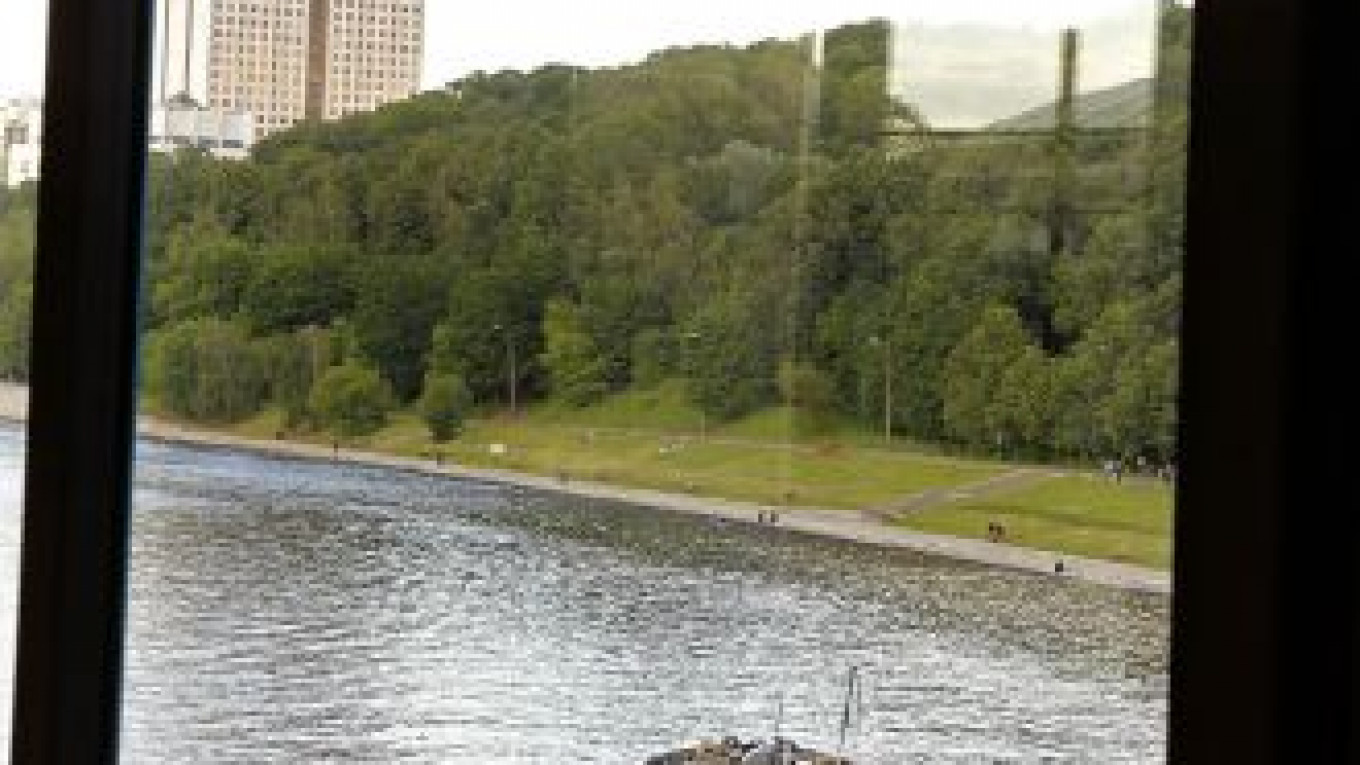The State Duma is set to vote Wednesday in a first reading on a heavily criticized bill sponsored by the government that would strip the Russian Academy of Sciences of an important source of revenue: the right to lease its premises.
On Tuesday, around a thousand researchers held a meeting in front of the academy's building in Moscow and some 300 gathered beside an academy building in St. Petersburg to discuss the bill. Participants of both meetings adopted resolutions asking lawmakers to postpone consideration of it, RIA Novosti reported.
The Russian academic community has cried foul over the reform plan, which was submitted to the Duma on Friday and has the support of Prime Minister Dmitry Medvedev and Education and Science Minister Dmitry Livanov.
Prominent academic Alexei Yablokov, who works as an adviser to the Russian Academy of Sciences and coordinates the Green Russia faction of liberal opposition party Yabloko, said the reform plan did "not serve the interests of science" but is aimed at someone's "short-term enrichment."
"This was done to seize the property," Yablokov said by telephone Tuesday, referring to the academy's current right to lease its premises, which belong to the state.
Various groups of researchers have written letters to Medvedev and the Duma asking for a vote on the bill to be postponed until it is discussed by the academic community, and a trade union leader representing scientists has promised protests if the reform is passed in its current form.
According to the bill posted on the Duma's website, the academy's powers to manage its property will be handed over to the state.
Another part of the reform is to merge the academy with the Russian Academy of Medical Sciences and the Russian Academy of Agricultural Sciences.
A government order published Friday explained the need for the reform by citing "insufficient coordination" in the current structure of the academy, specifically in the spheres of managing property and finances, which impedes the "dynamic development of science."
The bill is scheduled to go through a first reading in the Duma on Wednesday, while the key second and final third readings are tentatively set for the fall, Duma Speaker Sergei Naryshkin told journalists Tuesday, RIA Novosti reported.
Senior lawmakers with two of the four parliamentary parties — pro-Kremlin United Russia and the nationalist Liberal Democratic Party — spoke Tuesday in favor of reforming the academy but without referring specifically to the current bill, media reports said.
The two other parliamentary parties, the Communists and A Just Russia, voiced opposition to the current version of the reform.
In an apparent attempt to appease the academic community, Education Minister Livanov declared Tuesday that as the result of the reform, scientists would have the authority to define criteria for assessing the work of research institutes, job requirements and the balance between temporary and permanent salaries, as well as between basic and grant financing.
But Livanov also said the academy's property would only be used for scientific purposes, which is not the case currently, he said, possibly referring to the leasing of the academy's premises.
Many researchers agree that a reform of the academy is needed but only through discussion with the academic community, Yablokov said.
The government should increase spending on fundamental research from one to two percent of GDP, redistribute funds from Skolkovo to develop the so-called "academic small towns" across Russia, reduce red tape in science and attract youth into science, among other things, Yablokov said.
"No Skolkovo will replace the exodus of young specialists abroad," he said with irritation in his voice.
"We need to boost all of science, including in the Far East and Siberia."
Yablokov also said the merger of the Academy of Sciences with the two other academies would lead to "terrible red tape."
The academy's researchers vowed to stage a nationwide protest should the law be passed in a final reading, head of the academy's trade union Viktor Kalinushkin told a news conference this week.
"Scientists, although they quietly oppose the regime, are law-abiding people and usually don't go into the streets, but Livanov and company are spurring them to it," Kalinushkin said.
The trade union will publish a list of all the lawmakers who vote for the bill and will stage rallies against the parties to which they belong, Kalinushkin said.
"[Acting Mayor Sergei] Sobyanin, in case this happens, will be the first to feel the repercussions at the Moscow mayor elections [on Sept. 8] because he represents the party that will be responsible for passing this bill — United Russia," the trade union leader said.
Contact the author at n.krainova@imedia.ru
Related articles:
A Message from The Moscow Times:
Dear readers,
We are facing unprecedented challenges. Russia's Prosecutor General's Office has designated The Moscow Times as an "undesirable" organization, criminalizing our work and putting our staff at risk of prosecution. This follows our earlier unjust labeling as a "foreign agent."
These actions are direct attempts to silence independent journalism in Russia. The authorities claim our work "discredits the decisions of the Russian leadership." We see things differently: we strive to provide accurate, unbiased reporting on Russia.
We, the journalists of The Moscow Times, refuse to be silenced. But to continue our work, we need your help.
Your support, no matter how small, makes a world of difference. If you can, please support us monthly starting from just $2. It's quick to set up, and every contribution makes a significant impact.
By supporting The Moscow Times, you're defending open, independent journalism in the face of repression. Thank you for standing with us.
Remind me later.






